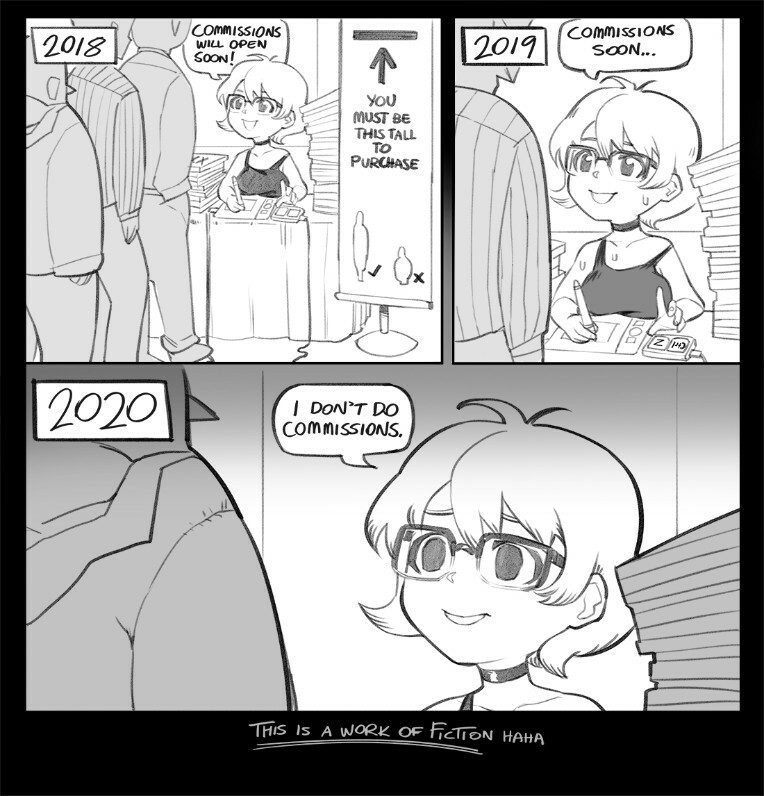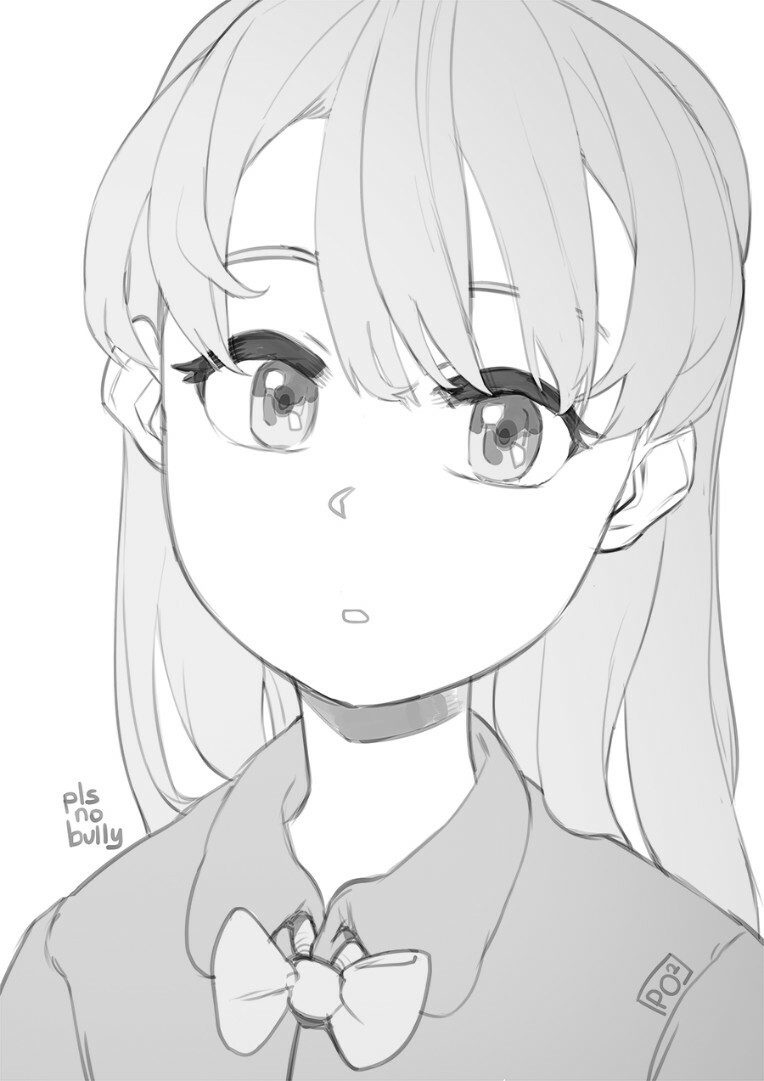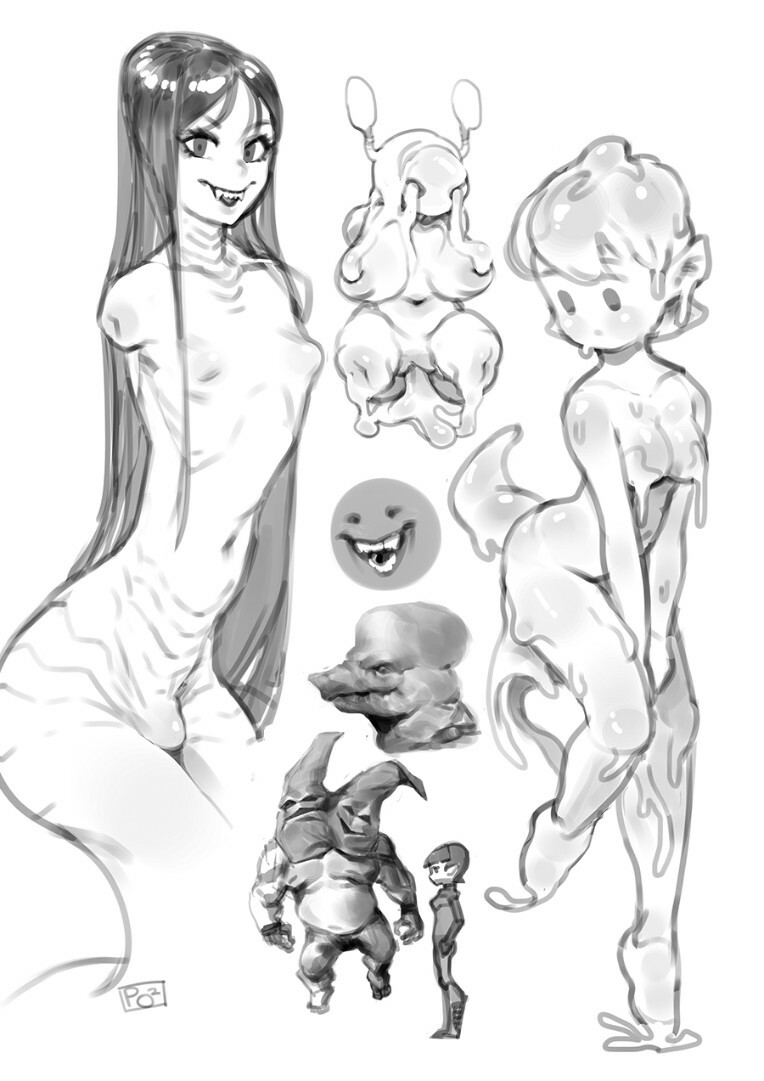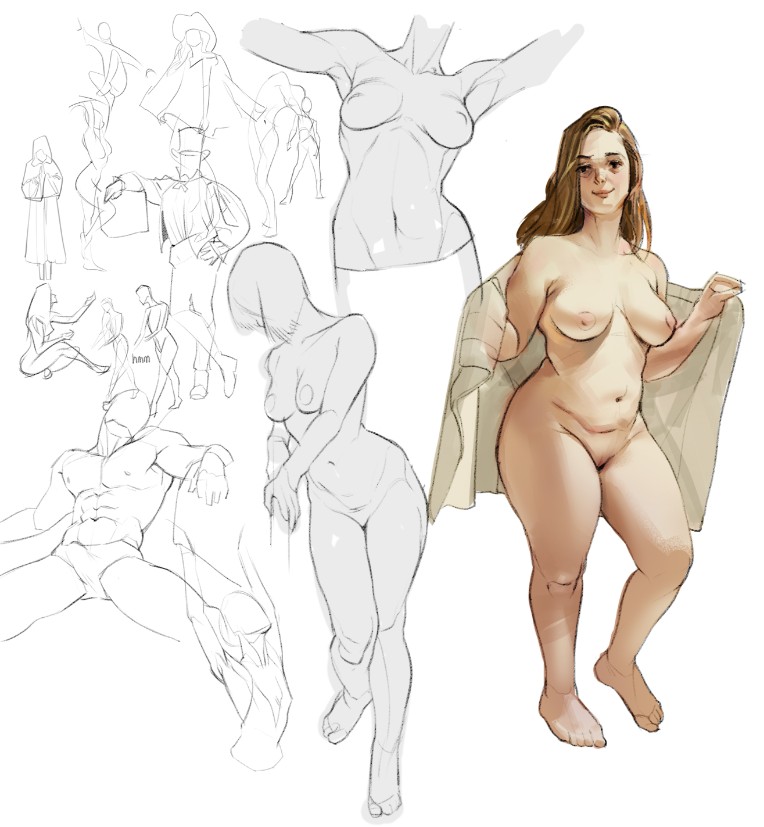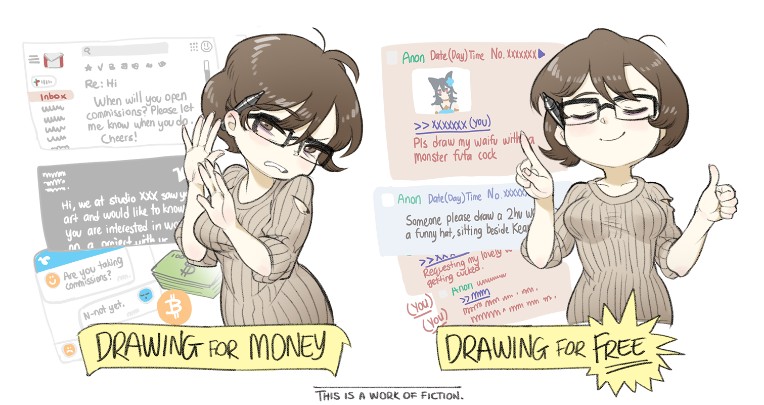RSI, or Repetitive Strain Injury, is a broad term for long term injuries from repetitive motion. I've decided to write this since a few people have asked me about it.
Who might this benefit? This should be particularly helpful for those who want to prevent RSI, and those who want to prevent relapses. There are many other resources out there that already deal with RSI, but I’m writing this to emphasize some of the key points that are often overlooked, as well as coming up with some simple strategies that should benefit you. If you aren’t already familiar with hand injuries, this should provide a good general overview: https://makingamark.blogspot.com/2016/04/artists-and-repetitive-strain-injury-rsi.html
See a medical professional if you haven't already! This is not a substitute for actual medical consultation, but rather, an introspective for altering your lifestyle to prevent desk
injuries.

RSI is a pain in the ass!
Breaks
I cannot stress this enough, take a break! It's easy to scribble away for hours on end and lose track of time. This will be your downfall. No matter how ergonomic your setup is, you still risk muscle and tendon overuse if you don't pause every now and then. There are two types of breaks; I shall call them small breaks and BIG breaks.
small breaks:
These are minor instances where you leave your workstation.You may try the Pomodoro technique, where you spend 20 minutes working with focus, followed by a 5 minutes break. It could also be used in line with the 20/20/20 rule (every 20 minutes, stare at an object 20 feet away for 20 seconds) to beat eye strain. There are many apps and timers you could use for this. Here's one that I use: http://www.tomighty.org/. It doesn't always have to be 20 minutes, as you can adjust the times to suit your tastes.
During these short breaks, get up and walk, stretch, do anything but sit. Try not having your drink at the desk, so you'll have to travel to your water dispenser. Do remember to stay hydrated though, it's important.
Remember, it doesn't count if you don't get up and leave your desk. Shitposting on a chinese calligraphy notice board is NOT taking a break.
BIG breaks:
Like taking a dump, or longer. You can spread your non-work events across the day, so that your working hours are punctuated by said events. For example:
-3 hours work
-45 minutes meal time
-3 hours work
-1 hour Gym time
-2 hours work
-45 minutes meal time
-1 hour work
Don't work for long hours on end without any BIG breaks; you're only accumulating your injuries. I would highly advise against being a night owl. These nocturnals tend to have longer continuous working hours that are uninterrupted by BIG breaks. It's easy to work from post-dinner to 6am in one go, but it'll be really bad for your body and soul. If you do intend on sticking with the night life, be sure to have a meal and an exercise session through the night.
Strengthening
Who knew you have to lift to be an artist. You sit on your arse all day, with your elbows bent like this letter L. Your limbs will harden and lose flexibility. Your lower back will kill you. Your neck will snap (citation needed). Maintaining an overall body fitness is important, as every part of your body is interconnected. Don’t just work out your arms, as you may have to deal with overcompensation which leads to muscle imbalance.
Hit the gym at least thrice a week for weight training. Alternate those exercises. Fill the other days out with cardiovascular exercises, but remember to vary them. Doing the same exact exercise frequently will lead to more RSI (such as shin splints from jogging or shoulder pains from push-ups). Do not worry if you don't have access to a gym. You can try out body weight exercises... you only need yourself to get started. When my elbows stopped hurting from cubital tunnel syndrome, I started doing push-ups, squats, and planks in my room.
I find pushups to be particularly helpful for stretching certain inner forearm muscles that are otherwise hard to stretch.
If you have access to a pool, I recommend swimming. It's a good way to have a full body workout and cardio with lesser chance of aggravating your injuries.
Stretching
The best thing to wrap the day is to stretch. Don't do it too close to bedtime though, as they'll increase your heart rate and make it difficult to fall asleep. There are many other resources out there that already cover this topic, so I'll just tell you what to look out for:
-static stretches
-dynamic stretches
-nerve-gliding exercises (these are particularly good for carpal tunnel and cubital tunnel syndrome).
-meditation (for improved breathing/blood flow)
You have to find out what works for you, as the nature of the injury differs from person to person. Here's a start for basic stretches: https://www.rsipain.com/stretching-exercises.php
I also recommend looking through Youtube; it's a treasure trove for occupational therapy videos. Here's one for cubital tunnel syndrome: https://www.youtube.com/watch?v=bdtdfo98gyY
I highly recommend triceps stretches, since the way we sit with our arms bent means really stiffened muscles. If you do neck stretches, be cautious and don't overdo it. Wiggle your arms to loosen up after the stretches. You may also try applying hot packs to the areas of your focused stretches to promote blood flow (don't do this if you have numbness).
Extras
These are some useful tips that don't really fit into the other categories.
-Don't play click-intensive games.
-no dota.
-no cookie clicker.
-no path of exile.
-no gacha games.
-Don't spend too much time on your phone (even though it's touchscreen and you're not actually pushing buttons, it'll sap your arms' vitality).
-Don't browse forums or social media for hours on end. Or rather, don't, unless you have a clear goal in mind.
-Hands off your mouse and let it hang down when you're not actually using the mouse.
-Don't masturbate for long hours daily.
-Don't masturbate, you're using arm mileage.
-Avoid caffeine (coffee and tea), especially if you're recovering.
-Don't smoke.
-If you use pressure sensitivity for opacity on your brush, be conscious not to clench your arm too much. Try to reduce reliance on it, if possible. You can also increase the overall pressure sensitivity through the pen settings.
-The definition of good ergonomics differ for everyone. If a recommended posture is giving you discomfort, try altering it. Most desk ergonomics you find online does not accommodate artists, as your hand positions will be different from people who only use the mouse and keyboard.
-Try a vertical mouse, or other alternative navigation devices.
-Try an oppai mousepad for when you're using a mouse. I place a folded cloth beneath my wrist that seems to help. Fingerless gloves could work too, but don't put on anything too constricting.
-Don’t try to do everything with your non-injured hand! Most people end up hurting that hand, too. There’s a high chance that your non-dominant hand is also on the verge of injury, from excessive CTRL+Z-ing.
-Be sure to have enough micronutrients such as Zinc and Magnesium
-Maintain a healthy mental state. Be optimistic about your recovery and health.
I feel a tingling in my arm after writing all this. Fuck you RSI!
